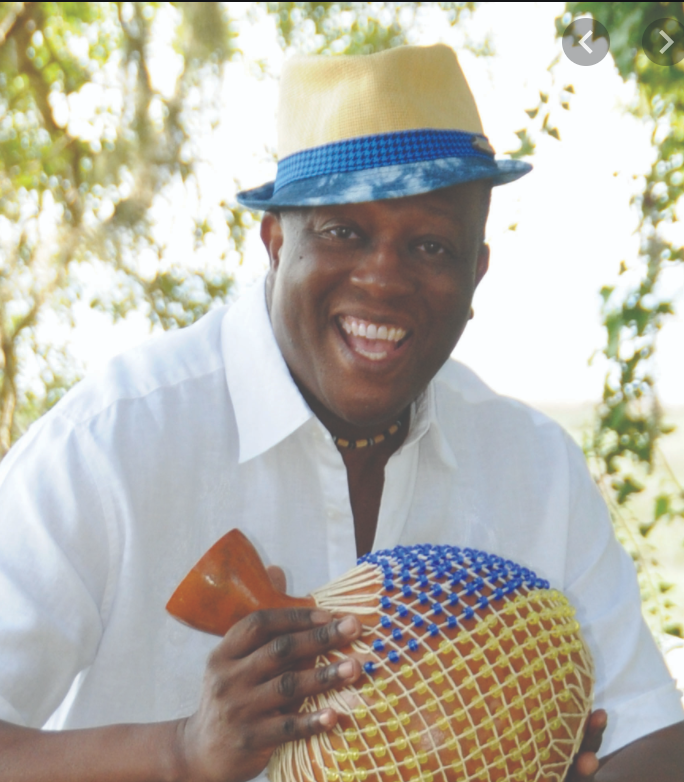“We're singing goodbye to the old camp and hello to the new camp.”
two unnamed Hadza women
“We are not interested in changing our culture to conform to the policy of the aggressors.”
Gudo Mahiya (goo-doh meye-yah), elder
“We stay here, to protect this place and the animals. And so we are patient.”
Mbugoshi (m-boo-go-she), hunter
“If you want to know who is Hadzabe, it is the land. Why? Because without land there is no Hadzabe.”
Nyanzobe Mpanda (nye-ahn-zoh-bay m-pahn-dah), elder
“This land is our land from the beginning. Through all the years we have lived here. We have buried our ancestors right here.”
Gonga Petro (gawn-gah peh-trow), Chairman, Village of Mongo wa Mono
“Freedmen definitely deserve reparations... because we need to be repaired for the trauma that was suffered … whether it be physical, mental, generational, [or] emotional.”
Lamar Williams Jr. (lah-mar will-yumz), member of the Dosar Barkus Band
“For generations, we have been a forgotten tribe of people. Now we are no longer a forgotten people. Now everyone is learning about who we are. That's a blessing.”
Sylvia Davis (sill-vee-yah day-vis), leader Dosar-Barkus Black Seminole band
“The next level of Maroon-age is not only do you win, but you get your adversaries to put it in writing through a treaty that you have won your freedom.”
Phil Fixico (fill fix-eh-koh), Founder Semiroon Historical Society
“The old people…would cook a little something and make sure that the neighbor or one of their cousins or somebody had some too.”
William Warrior (will-yum war-ree-yore), President Seminole Negro Indian Scouts
“All the women they would get together and take out the crops… We go from one field to another until we get it done.”
Alice Fay Lozano (ah-liss fay loh-zah-no), storyteller
“For more than 200 years we kept our double African and Indian heritage alive. Our language and our way of life, our songs and dancing… all remind us of our distinctive roots.”
Charles Emily Wilson (char-ells eh-mih-lee will-sun), leader Seminole Scout Association
“This is a creole culture and what it takes is a great ability to adapt and a willingness to do so, and still hold on.”
Natalie Daise (nah-tah-lee dayz), story-teller, artist
“If you can’t hold onto the land, you can’t hold onto the culture.”
Jabari Moketsi (jah-bahr-ee moh-ket-see), publisher Gullah Sentinel newspaper
“Mine is a living culture, not one of some 200 years ago. It's a culture that continues to shape our surroundings.”
Ron Daise (ron dayz), singer, culture preservationist
“We must tell our stories and govern our own community as our foreparents did. We know that 'empty sak cyan stan upright lone.’”
Marquetta L. Goodwine (Queen Quet) (mahr-ket-tah el good-wine kween kwet), preservationist
“The Gullah…had existed without the need for cash. Everything the Gullah people needed was done by them, among them, and you might say in coordination with the entire community.”
Emory Campbell (em-more-ee kam-bull), micro-biologist, activist
“With Gullah Geechee people we created and preserved our language under the threat of death for being literate.”
Sunn m'Cheaux (sun mih-show), Gullah language teacher
“Let us remember we descend from folks who…manifested freedom when everything else said otherwise.”
Sara Makeba Daise (sah-rah mah-kee-bah dayz), Cultural History Interpreter







![“Freedmen definitely deserve reparations... because we need to be repaired for the trauma that was suffered … whether it be physical, mental, generational, [or] emotional.”](https://images.squarespace-cdn.com/content/v1/5cc4b5b0d745629b0df57a4c/1617265105449-WWCTE96T9U73UQCRXKRI/Screen+Shot+2021-03-04+at+10.04.32+AM.png)












